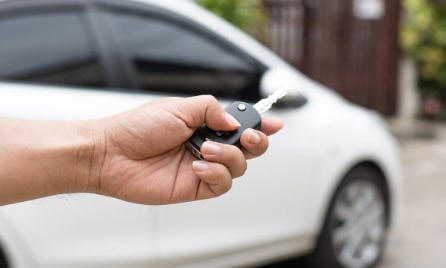- text
-
* Savings between $0 to $320 derived from premium comparisons between Everyday Comprehensive car cover option and Drive Less Pay Less option. Calculations based on profiles of existing Everyday Car Insurance customers who drive 15,000km or less annually. Current as at 06 March 2024. Eligibility for Drive Less Pay Less and actual savings is determined by your individual circumstances, including the kilometres selected and other risk factors and underwriting criteria. Minimum premiums may reduce savings. Kilometres can be increased to a limit of 15,000km per period of insurance for an additional premium. In the event of a claim, if the end odometer reading is exceeded, an additional Outside odometer excess will apply.
Understanding car insurance.
- What is car insurance?
- How does car insurance work?
- Is car insurance worth it?
- What Car Insurance Policies does Everyday Insurance Offer?
- Comprehensive Car Insurance.
- Drive Less Pay Less Insurance.
- Third Party Property, Fire & Theft.
- Third Party Property Damage.
- How do I get car insurance?
- Get a quote online today and see how much you could save.
- Car Insurance Info Hub.
- We're here to help.
If you’ve just bought a vehicle, you might be shopping around for car insurance. With many cover options available, it’s sometimes difficult to choose what kind of protection you need. Did you know that the age of your car and the way you use it can affect your premium? If you’re not sure where to start, read our guide which may assist you in determining what car insurance might work for you.
What is car insurance?
Car Insurance is a type of insurance policy you can buy to help mitigate financial costs if you are involved in a car accident. You can insure your car to protect it against damage in an accident, theft, or damage to another person’s vehicle.
How does car insurance work?
Depending on the type of car insurance you buy, certain policies may help cover costs like - repairs from an accident, damage to other people’s property, theft and fire, and more.
Here’s how it works:









